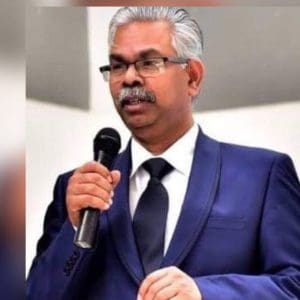By Dr. Venunadhan B. Pillai
Executive Principal – Vellore International School, Chennai

NEP 2020 has a holistic approach as expected for a welfare society except for some paradoxes. However, many proposals seem more aspirational than realistic. For example, high-quality infrastructure and amenities are required for the implementation of the policy. These demands have become more pertinent with the paradigm change in the sector due to the pandemic. However, the present state of the school infrastructure is still mostly deplorable. Additionally, the existing teachers are to be trained to teach the new curriculum, which is another humongous challenge for the government. Continuous Professional Development (CPD) is also required to sustain quality as many teachers in the current system are accidental teachers. The cost of CPD is a recurring expense.
The pre-primary and primary years are formative and seminal, where we require the best of the facilitators with intensive training. This is what we see in developed countries. The NEP states that “Anganwadi workers/teachers with qualifications of 10+2 and above shall be given a 6-month certificate program in ECCE; and those with lower educational qualifications shall be given a one-year diploma program covering early literacy, numeracy, and other relevant aspects of ECCE.” What can they learn in six months or in one year? The government should plan degree equivalent in-service courses to equip the facilitators very well for taking the pre-primary and primary education to a world-class level.
All these require funding. The policy stipulates that public investment in education should be up to 6% of the GDP. The current investment is only 3.1%. This will bring substantial additional financial liability for the central and state governments; they have to find 6.4 lakh cores additionally. Therefore, funding for the implementation of the Policy is the most significant challenge. One of the suggestions in the policy to overcome the financial crunch is a public-philanthropist partnership for bettering the school education facilities. It is an excellent thought, but how many resources can we gather from such collaborations? Consequently, high levels of private investment are essential for the process of elevating India to a knowledge economy. This situation will lead to greater commercialization of education despite all the precautionary measures mentioned in the policy.
Political opposition will be another major challenge. The opposition parties criticize that it is a ploy of the neoliberal capitalists to plunder the resources of India. The government, however, will be able to overcome this criticism as it does not hold much legitimacy. India started courting neoliberal capitalism in 1991. Consequently, the Indian economy is already merged with the international political economy; integrated irreversibly with the global economy in all areas, including finance, trade and foreign policies. The middle class believes that it is better to be a part of neoliberal capitalism to protect their interests and that the curriculum of the 21st century should prepare the next generation for employment in the world market. They, therefore, support the policy wholeheartedly. However, how will we overcome the funding challenge? Will education continue to be India’s Achilles heel? We need to wait and see.


